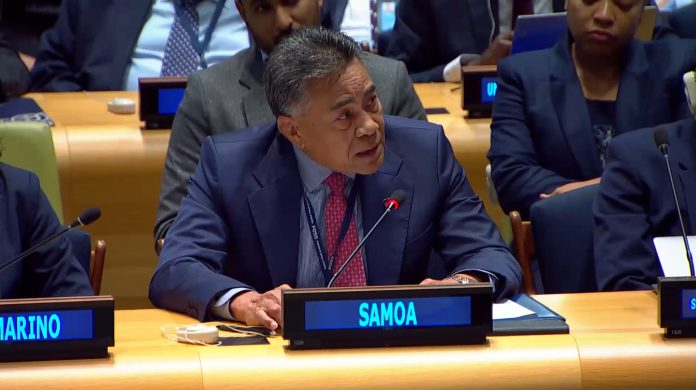In a historic decision during the 103rd plenary session of the General Assembly, the United Nations adopted the Multidimensional Vulnerability Index (MVI) by consensus, signaling a significant advancement for Small Island Developing States (SIDS) in their fight for sustainable development and global equity.
This new benchmark, which transcends traditional development metrics like income per capita, is designed to better capture the complex challenges faced by vulnerable countries.
The MVI, the result of a four-year advocacy campaign led by SIDS, represents a critical step towards the reformation of the international financial system.
Small Island Developing States, severely impacted by the COVID-19 pandemic, had successfully petitioned the UN Secretary-General to develop an index that quantifies their unique vulnerabilities.
The UN-appointed High-Level Panel’s work concluded in 2023, laying the foundation for the MVI, which was further refined through extensive negotiations among UN member states.
The Chair of the Alliance of Small Island States (AOSIS) and Samoa’s Permanent representative to the UN, Fatumanava-o-Upolu III Dr Pa’olelei Luteru, hailed the adoption of the MVI as a milestone but stressed that it should not be viewed as the final victory.
“AOSIS trusts that this hard-won achievement will not be lauded only to be abandoned, as if the development of the MVI is the sole gain,” Dr Luteru said in a statement.
He called for the immediate deployment and testing of the MVI in real-world contexts, urging not only the UN system but also donors, development banks, and financial institutions to actively engage in this new approach.
“A new approach that will bring benefits for all of us, as we work together to address the common challenges our world faces,” he stated, underlining the importance of tangible action following the adoption.
The MVI is expected to provide a more accurate understanding of the structural vulnerabilities that SIDS and other developing nations face, allowing for more targeted and effective support. By incorporating multiple dimensions of vulnerability, the MVI aims to unlock new ways of thinking about and acting on development challenges.
This achievement, which comes after months of intense negotiations and years of persistent advocacy by SIDS, is a testament to the resilience and determination of these nations in securing a tool that reflects their reality.
However, as AOSIS has made clear, the real test lies in ensuring that this tool is effectively used to bring about meaningful change in the global development landscape.













